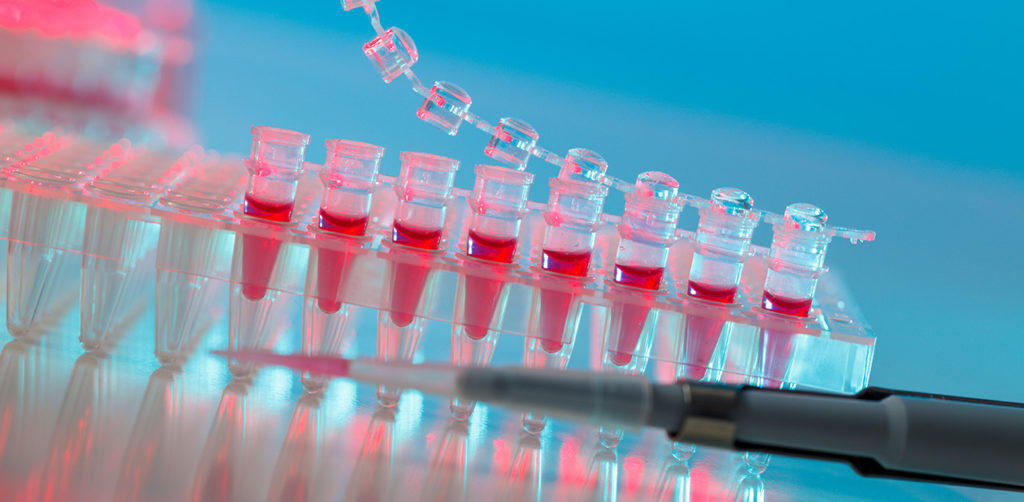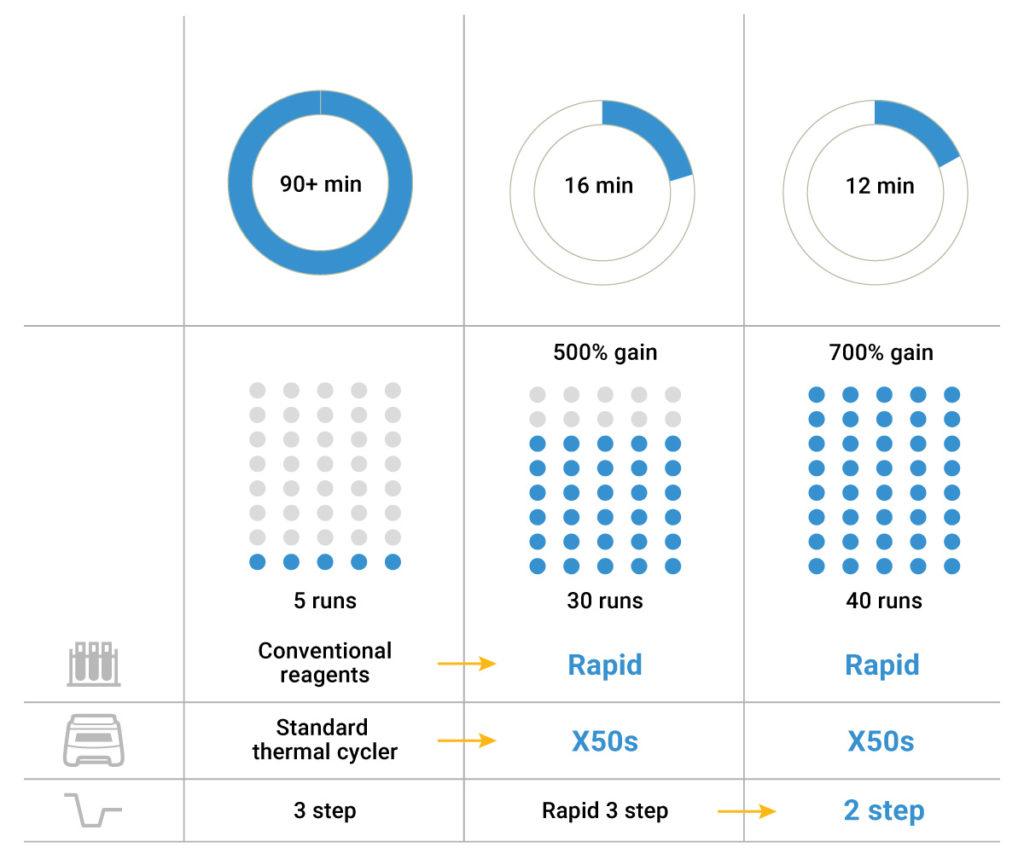Since its invention in 1983, the polymerase chain reaction (PCR) has become a fundamental technology in life science laboratories across the world. Much of the technological innovation is driven by quantitative PCR and digital PCR (1); however, endpoint PCR remains a workhorse technology for applications such as gene cloning, mutagenesis and detection of microbial pathogens. Variations on the basic endpoint PCR method—for example, the use of multiplexed, fluorescently labeled primers followed by capillary electrophoresis to analyze the amplified DNA fragments—are popular in forensic DNA analysis and cell line authentication.

The COVID-19 pandemic has created an urgent need for PCR-based diagnostic testing for SARS-CoV-2. Most of these diagnostic tests use real-time, reverse-transcription quantitative PCR (RT-qPCR). However, RT-qPCR can be challenging for routine use in developing countries and in laboratories with limited access to real-time PCR thermal cyclers. A recent study described an endpoint PCR method for SARS-CoV-2 detection to address these limitations (2).
High-Quality, Fast PCR
Typically, endpoint PCR can take 1–2 hours to complete. This time can be shortened by using specially formulated PCR master mixes or thermal cyclers designed with rapid ramp rates. Recently, Promega announced a partnership with Eppendorf to offer one of the fastest endpoint PCR solutions on the market. The combination of the Promega GoTaq® Rapid Master Mix and the Eppendorf Mastercycler® X50s thermal cycler can reduce typical endpoint PCR run times to as little as 15 minutes.
The GoTaq® Rapid Master Mix can be used both in a rapid three-step PCR or two-step procedure. The three-step cycle allows for accelerated amplification of challenging templates, and when using conventional thermal cyclers with ramp rates below 4˚C/second. A three-step cycling method is also recommended when optimizing PCR before transitioning to the two-step procedure.
The rapid two-step procedure combines the annealing and extension steps, enabling successful amplification of a 1kb amplicon in as little as 15 minutes on the Eppendorf Mastercycler® X50s. Shortening the amplification time enables a laboratory to focus on upstream sample preparation or downstream data analysis.

The GoTaq® Rapid Master Mix includes a Taq DNA polymerase with hot-start antibodies, enabling room-temperature reaction assembly to reduce the risk of primer-dimers and nonspecific DNA amplification. For human genomic DNA, researchers can adjust their extension phase based on their desired target amplicon length. Typically, as the complexity of the sample is reduced or the reaction’s extension cycle time increases, the clarity of bands of a given length improves. Using the GoTaq® Rapid Master Mix, clear bands of increasingly longer targets—up to 1,600 bp—can be achieved in a total cycling time of 15 minutes or less.

In summary, the combination of GoTaq® Rapid Master Mix and the Eppendorf Mastercycler® X50s increases the speed and efficiency of virtually every endpoint PCR workflow. Laboratories processing a high volume of samples will benefit from this combination to improve their throughput and time to results.
To learn more about GoTaq® Rapid Master Mix, visit the product page.
References
- Zhu, H. et al. (2020) PCR past, present and future. BioTechniques 69, 317–325.
- Silva Júnior, J.V.J. et al. (2021) End-point RT-PCR: A potential alternative for diagnosing coronavirus disease 2019 (COVID-19). J. Virol. Meth. 288, 114007.
Related Posts
Latest posts by Ken Doyle (see all)
- Will Artificial Intelligence (AI) Transform the Future of Life Science Research? - February 1, 2024
- RAF Inhibitors: Quantifying Drug-Target Occupancy at Active RAS-RAF Complexes in Live Cells - September 5, 2023
- Synthetic Biology: Minimal Cell, Maximal Opportunity - July 25, 2023
